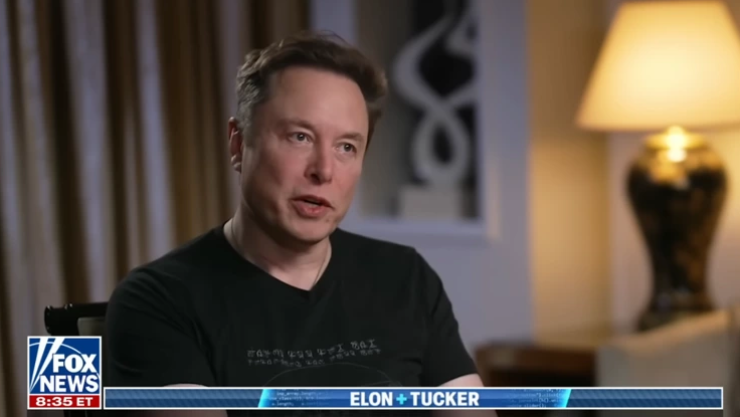
Will the net result of artificial intelligence be the creation of a digital deity?
Billionaire tech mogul Elon Musk revealed in an interview with Tucker Carlson that Google co-founder Larry Page once told him he hoped to build an AI super-intelligence that Musk described as a “digital god.”
According to the 51-year-old Musk, the exchange occurred when he stayed at Page’s home in Palo Alto, California, when the two were “close friends.”
“I would talk to him late into the night about AI safety, and at least my perception was that Larry was not taking AI safety seriously enough,” Musk said, adding that Page wanted a “digital super-intelligence, basically a digital god, if you will, as soon as possible.”
Musk pointed to a number of public statements made by Page over the years showing that “the whole goal of Google is what's called AGI, artificial general intelligence or artificial super-intelligence.”
Page, who, along with co-founder Sergey Brin, stepped down from the search giant in 2017, once told a London tech conference audience back in 2006 that his grand vision for search begins and ends with AI.
"The ultimate search engine would understand everything in the world. It would understand everything that you asked it, and give you back the exact right thing instantly," Page said at the Zeitgeist '06 event in London.
Since then, Google has accelerated its efforts to incorporate AI, starting with its $500 million acquisition of DeepMind, a London-based AI research lab, in 2014.
Following the success of ChatGPT, Google is set to debut a version of its search engine with a chatbot sometime this year, according to The New York Times.
Musk said at the time of his conversation with Page, Google had already made the DeepMind acquisition and “had about three-quarters of all the AI talent in the world.”
He also recalled Page’s reaction when he warned him about the potential dangers of AI super-intelligence.
“I agree with him that there's great potential for good, but there's also potential for bad,” Musk told Carlson. “And so, if you've got some radical new technology, you wanna try to take a set of actions that maximize the probability that it will do good and minimize the probability that it will do bad things.”
But when Musk reminded Page about the responsibility to “make sure that humanity is OK,” Musk said Page called him a “speciesist.”
“Did he use that term?” Carlson asked.
“Yes. And there were witnesses, I wasn't the only one there when he called me a ‘speciesist,’” Musk replied. “And so, I was like, ‘OK that's it, yes, I'm a ‘speciesist,’ OK? You got me.’”
The remark reportedly came during an argument between the two moguls at a party in Napa Valley in 2015, according to Massachusetts Institute of Technology (MIT) professor Max Tegmark, who recalled the conversation in his book, Life 3.0: Being Human In The Age of Artificial Intelligence.
According to the book, Page warned that “AI paranoia would delay the digital utopia and/or cause a military takeover of AI that would fall foul of Google’s ‘don’t be evil’ slogan.”
Tegmark wrote: “At times, Larry accused Elon of being ‘speciesist’: treating certain life forms as inferior just because they were silicon-based rather than carbon-based.”
Speciesism is defined by PETA and other animal ethics groups as a “supremacist” view that humans are superior to animals and all other species.
Earlier this year, Musk announced he was putting together a research team to combat what he has termed the “deadly” threat of woke AI.
Musk reached out to a select group of “artificial intelligence researchers in recent weeks about forming a new research lab to develop an alternative to ChatGPT,” according to The Information.
In December, the founder of PayPal, Tesla, SpaceX and other ventures warned about the potential risks in the rise of AI tools like ChatGPT, which Musk tweeted as one example of “training AI to be woke.”
Courtesy of The Christian Post.




